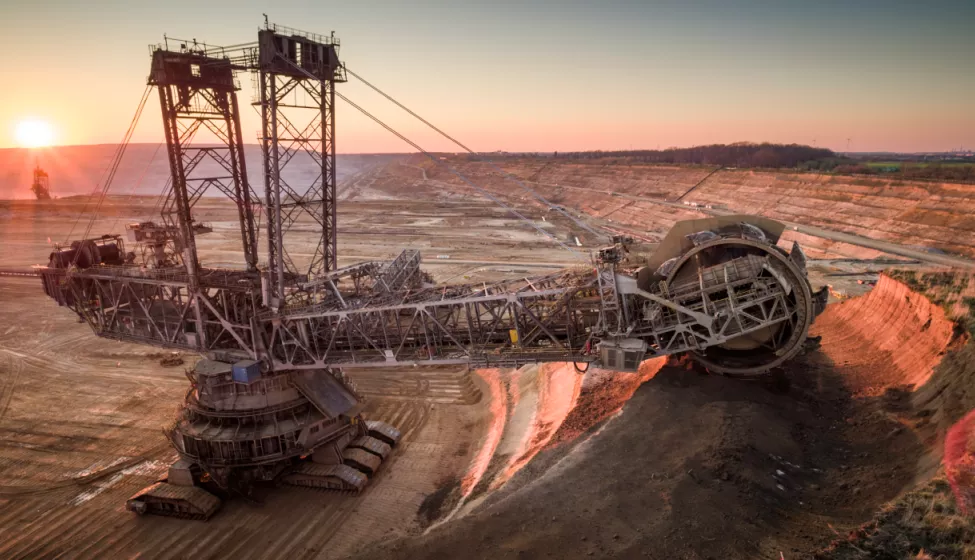May 19, 2022
Is expert determination poised for greater use in alternative dispute resolution?
Of all the forms of alternative dispute resolution (ADR), expert determination — where an expert with specific technical knowledge determines the outcome in a dispute — is one of the least known and, based on the availability of published data, least used. However, that could be poised for change.
While claims processing may accelerate through the rapid adoption of new technology and virtual hearings during the COVID-19 pandemic, the backlog of delayed cases — and associated time and costs — could also motivate the use of expert determination where warranted.
One of the key reasons expert determination is not as common among construction and engineering projects is because of the technical, frequently interdisciplinary complexities that most claims involve. Still, the potential benefits make it a worthwhile avenue for exploration and create an opportunity for many stakeholders to streamline broader dispute claims by carving out well-defined technical issues or a single point of disagreement.
Determining to use expert determination
The first consideration for using expert determination or other ADR processes is whether they have been specified in the contractual terms between two parties. This may or may not include an agreement that the outcome of the expert determination is binding, which is key.
Although expert determination may not always be binding, many international appeals processes are inclined to evaluate the final judgement against existing law or similar cases rather than reopen the technical expert's analysis. In this way, expert determination should be approached with the intention of finality, even if the parties have not agreed to binding terms. Parties who have not included contractual clauses listing expert determination may still pursue this course of action, if mutually beneficial and agreed on.
The second consideration is the scope of the issue or issues being determined. They must fall within the expert's area of technical expertise and, thus, are always narrow in scope. In turn, it is equally important that the boundaries of the expert's remit are clearly defined and not allowed to stray into other claims. These elements are critical to an outcome that is satisfactory for all parties involved. If the circumstances are right and a claim meets the above criteria, expert determination offers significant benefits, such as:
Flexibility: Expert determination allows two parties to go straight to an expert rather than a judge or arbitrator.
Tailored service: Parties are allowed to agree on employing a technical expert with direct knowledge of complicated technical issues.
Speed: The lack of a legal framework typically enables a faster process that is less reliant on third parties.
Cost effective: Simple procedural rules usually only involve documentation (oral proceedings are seldom required).
Certainty: Where parties agree that the expert's determination is final and binding, it is difficult to challenge the determination.
Investigative: Experts use their own knowledge, expertise, and experience to investigate a matter rather than having to base a decision on the submissions of the parties only.
Maintaining commercial relationships: Expert determination is shorter, less adversarial, and confidential, making it easier to maintain commercial relationships that might be ruined by formal arbitration.
Specific issues, specific expertise
Expert determination allows two parties to go straight to an expert rather than a judge or arbitrator.
There are as many ways to deploy expert determination as there are types of technical experts in the world. Experts can be drawn from a range of professions, including engineers, scientists, surveyors, accountants, valuers, or lawyers. Some professional legal and technical bodies can also help appoint an expert, such as in the UK, where the Centre for Effective Dispute Resolution, The Bar Council, Academy of Experts, and Institution of Chemical Engineers (IChemE) are known entities.
Although quantum and delay disputes with no overlap into technical issues may be ideally suited for expert determination, there are many ways each case can play out. We've included three examples below, including an engineering dispute, to illustrate how and when expert determination can be used — and elements that can impact a satisfying outcome.
Quantum: Two parties involved in a large mining dispute in Africa agreed to expert determination to resolve how much was owed to a contractor who had completed a substantial amount of work before the project was terminated. The owner knew that money was due to the contractor, but the parties disagreed on the amount. The contract specified a cost reimbursable form based on the IChemE Green Book, which allows for expert determination in its dispute resolution clauses.
Each side hired their own quantum expert to assess the cost reimbursable amount due on the work completed up to the date of termination. The parties' expert submissions were presented to a third, independent quantum expert appointed under the IChemE White Book Rules for expert determination. The determination was deemed final and binding, and when an amount was settled by the third-party quantum expert, it was paid to the contractor and resolved the issue in a straightforward manner.
Delay: A large and complex power plant project was experiencing major delays, resulting in multiple claims being submitted by the contractor to the employer. The causes of the delays were in dispute by the parties, and they agreed to initially resolve one important aspect — milestone payments — through expert determination. The milestone payments were specified in the contract between the contractor and employer as due upon a particular stage of work being completed. The employer disagreed that the contractor had in fact achieved a specific milestone, which was alleged to be the root cause of a particular delay.
Expert determination was new to both parties and was not included in their contractual agreement as an alternative route of arbitration. Given this context, the parties spent time agreeing on a framework for the process to follow, including the responsibilities of the expert determinator and mapping of how different findings by the expert would result in specific outcomes. This approach ensured that when the root cause of the delay was identified, both parties accepted the matter as fully resolved.
Engineering: The project owner of a large green-field industrial process plant was experiencing issues with its high-voltage electrical system during the commissioning phase of the plant. Ultimately, these issues affected the operability and functionality of the mechanical and thermal equipment in the plant. As a result, a dispute arose between the project owner and the equipment supplier who specified and delivered key components of the plant's high-voltage electrical system. While the parties generally agreed to the presence of the electrical issues, they disagreed as to the cause of the issues. Principally, the dispute was about whether the equipment in question was correctly specified and supplied or whether the cause of the issues stemmed from equipment installation and other factors beyond the engineering scope of the equipment supplier's control.
To reach resolution, both parties agreed on a common electrical engineer to make an expert determination on the cause of the observed electrical issues. However, as plant commissioning progressed, and before the agreed upon expert made a determination, the project owner alleged more non-electrical issues related to the operability and functionality of the mechanical and thermal equipment, and the dispute moved from expert determination into full arbitration with multiple different technical experts involved.
How Exponent Can Help
Exponent's multidisciplinary experts are uniquely positioned to provide our clients with a diverse set of quantum and delay and engineering support. We offer independent, objective advisory services for all facets of claims and disputes, as well as expert testimony and litigation advisory support for international arbitration and ADR processes, including expert determination. We work with many sectors of the construction industry, including construction owners, lending agencies, engineering and construction contractors, subcontractors, designers, legal firms, and insurance carriers.
What Can We Help You Solve?

Thermal Sciences Expertise for Disputes
Evidence-based scientific insights and expert witness support for industrial fires and explosions, oil and chemical spills, and equipment failures.

International Dispute Resolution
For over 50 years, Exponent has provided independent, objective expert advice to clients involved in dispute resolution all over the world and in disputes acros...

Disputes
Get an independent, expert opinion for understanding challenges based on science, evidence, and data.



